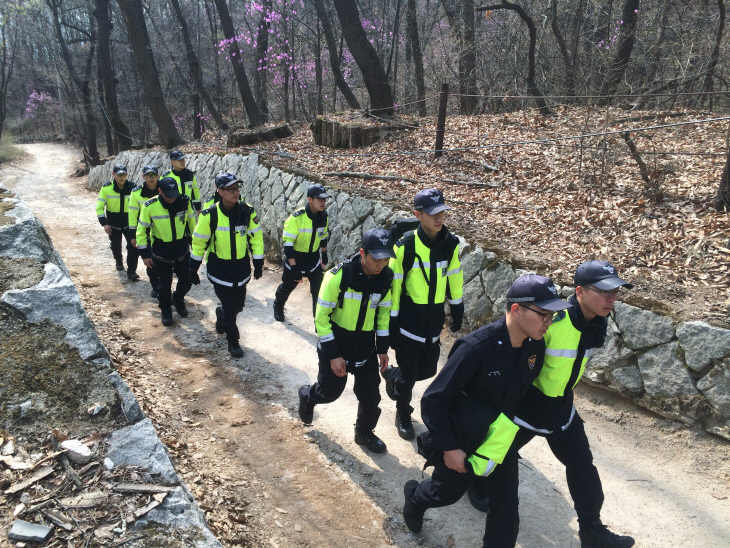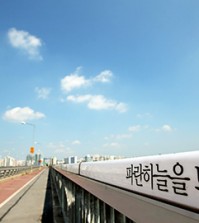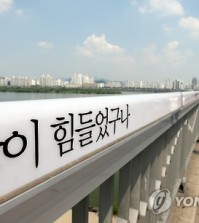- California Assembly OKs highest minimum wage in nation
- S. Korea unveils first graphic cigarette warnings
- US joins with South Korea, Japan in bid to deter North Korea
- LPGA golfer Chun In-gee finally back in action
- S. Korea won’t be top seed in final World Cup qualification round
- US men’s soccer misses 2nd straight Olympics
- US back on track in qualifying with 4-0 win over Guatemala
- High-intensity workout injuries spawn cottage industry
- CDC expands range of Zika mosquitoes into parts of Northeast
- Who knew? ‘The Walking Dead’ is helping families connect
Missing ex-construction firm head found dead, suicide

Police search a northern Seoul neighborhood on April 9, 2015, for a businessman who disappeared after facing allegations that he embezzled under former President Lee Myung-bak’s energy diplomacy initiative. (Yonhap)
SEOUL (Yonhap) — An ex-head of a local construction firm was found dead here Thursday as he was awaiting trial over alleged embezzlement of company funds.
A police dog discovered the body of Sung Wan-jong, former head of the troubled Keangnam Enterprises Ltd., hanging from a tree on an untrodden path on Mt. Bukhan in northern Seoul at about 3:30 p.m., police said, after a manhunt that involved more than a thousand officers.
Sung had been missing since 5:10 a.m. just hours before he was set to attend a trial to determine the legitimacy of his arrest.
The 64-year-old is suspected of taking 80 billion won (US$74 million) in government loans by exaggerating the amount of profit his company was expected to make on an investment in an oil exploration project in Russia. He allegedly used part of the funds to create a slush fund worth 25 billion won (US$22.8 million).
He flatly denied the allegations at a self-organized press conference a day earlier. He said it was impossible to embezzle because Keangnam Enterprises was required to invest out of pocket first and be reimbursed by state-run oil and resource companies later.
Sung’s family called police about three hours after his disappearance to say they had discovered a suicide note, police reported.
Sung’s disappearance came two days after a Seoul court approved a rehabilitation plan for the embattled builder and its two affiliates, which were declared insolvent.
The companies invested in the Kamchatka project in Russia’s Far East under former President Lee Myung-bak’s controversial initiative to encourage resource investments. The project was suspended in 2010 after disappointing results.
Lee, who was in office from 2008 to 2013, offered less-strings-attached loans to companies investing in overseas energy resource projects. The purpose was to lower the cost of energy imports, which make up more than 95 percent of the country’s energy resources.
Critics, however, believe the project ended up wasting taxpayer money and created an environment conducive to corruption.

















Pingback: South Korea in turmoil over corruption | CL-UAT
Pingback: South Korea in turmoil over corruption - WNewsNetwork
Pingback: South Korea in turmoil over corruption | Nagg
Pingback: South Korea in turmoil over corruption | Quadrangle.lk